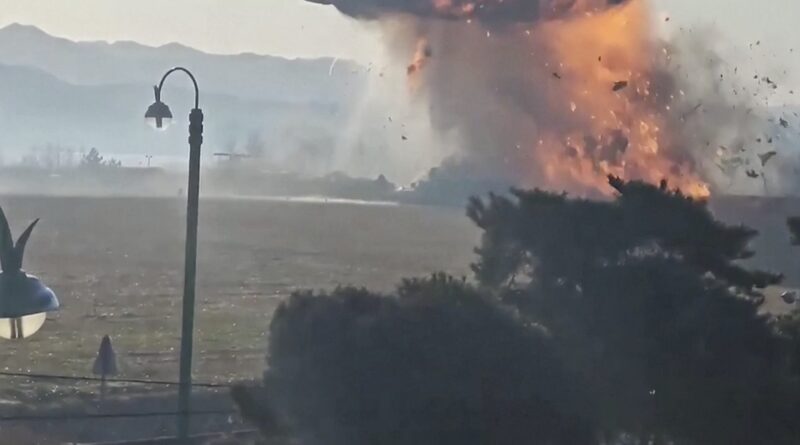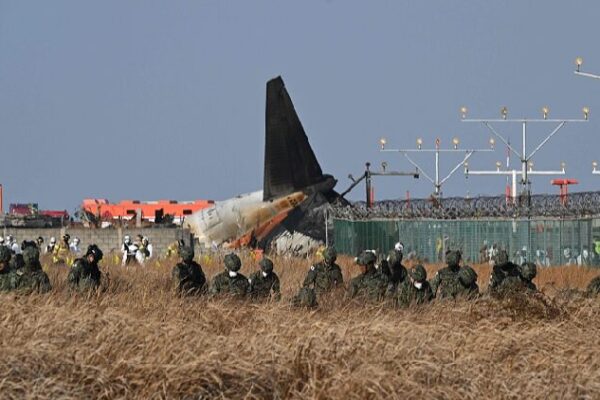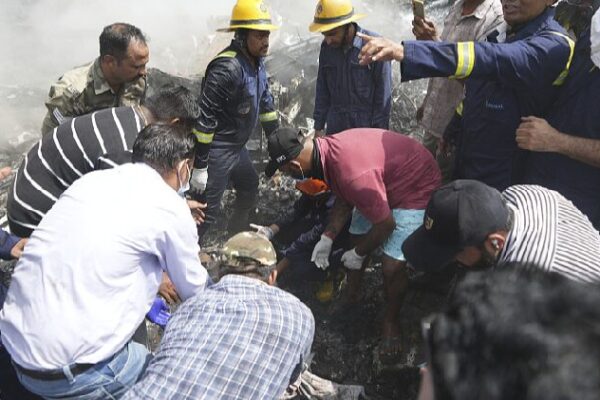Seoul, South Korea — Aviation experts are delving into multiple factors that may have led to a devastating plane crash on Sunday, which claimed the lives of 179 out of 181 people on board. The Jeju Air flight 7C2216 was en route from Bangkok to Muan International Airport when tragedy struck.
Unfolding of the Tragic Event
At approximately 9 a.m., as the aircraft approached for a routine landing, the pilots reported a bird strike to air traffic control and issued a Mayday signal. Shortly after, the plane made an emergency belly landing about 1,200 meters along the runway. Lacking deployed landing gear, the aircraft skidded off the runway and collided with an embankment, erupting into flames upon impact. Only two crew members survived the crash.
Key Questions Arise
Investigators are examining possible causes, including the bird strike report, potential landing gear malfunctions, and pilot decisions during the emergency. Aviation safety expert John Nance expressed confusion over the high landing speed and lack of deployed landing gear, stating, “I can’t think of any reason for being forced to make a landing like this.”
Debate Over Bird Strike Impact
While the bird strike is a focal point, experts like Chen Jianguo, a seasoned pilot, argue that such an event typically wouldn’t prevent landing gear deployment. The landing gear operates on a hydraulic system primarily powered by the left engine, suggesting other factors may have been at play.
Infrastructure Concerns
Authorities are also scrutinizing the role of a concrete embankment housing the localizer antenna at the runway’s end. “Normally, you don’t have a wall at the end of a runway,” noted Christian Beckert, a Lufthansa pilot. Such structures can exacerbate the severity of runway overrun incidents.
Spotlight on Boeing 737-800
The aircraft involved was a Boeing 737-800, a widely used model with a strong safety record. In response to the crash and a subsequent landing gear issue on another 737-800, South Korea’s Transport Ministry has initiated a special inspection of all Boeing 737-800 aircraft operated by domestic airlines.
Government Actions
Acting President Choi Sang-mok has ordered an emergency safety inspection of the nation’s entire airline operation system. “Before the final results are out, we ask that officials transparently disclose the accident investigation process and promptly inform the bereaved families,” Choi stated during a disaster management meeting in Seoul.
Moving Forward
As investigations continue, the nation mourns the loss of lives and seeks answers to prevent future tragedies. The focus remains on uncovering the truth behind the accident to enhance aviation safety standards.
Reference(s):
cgtn.com








